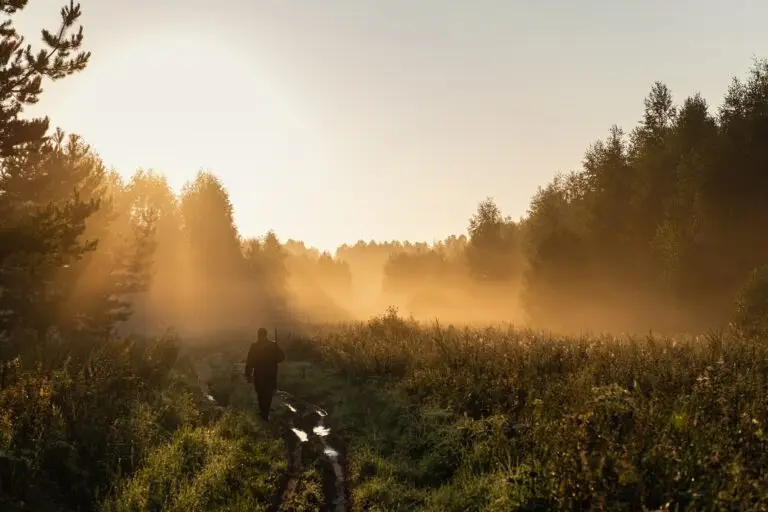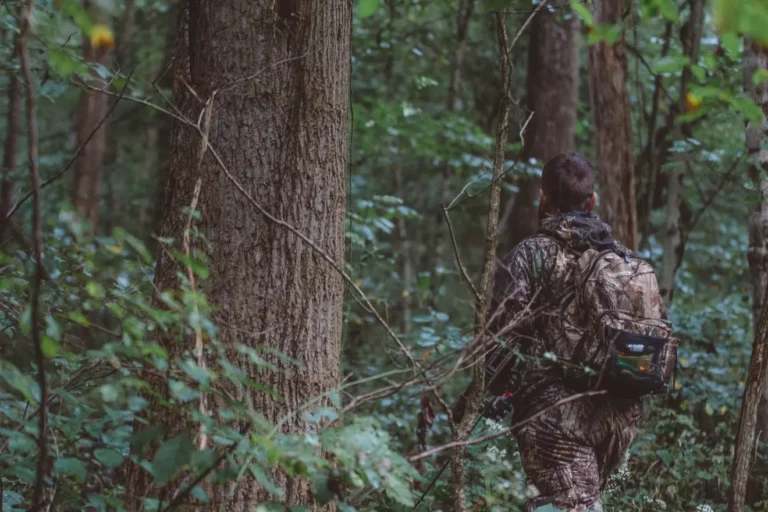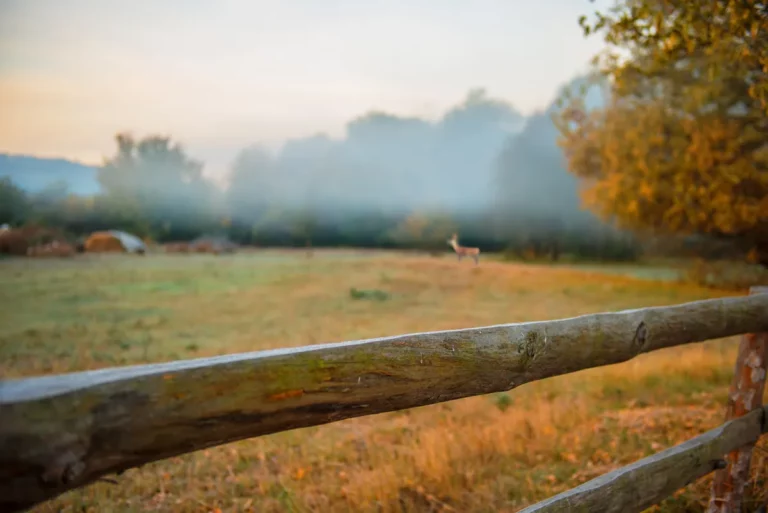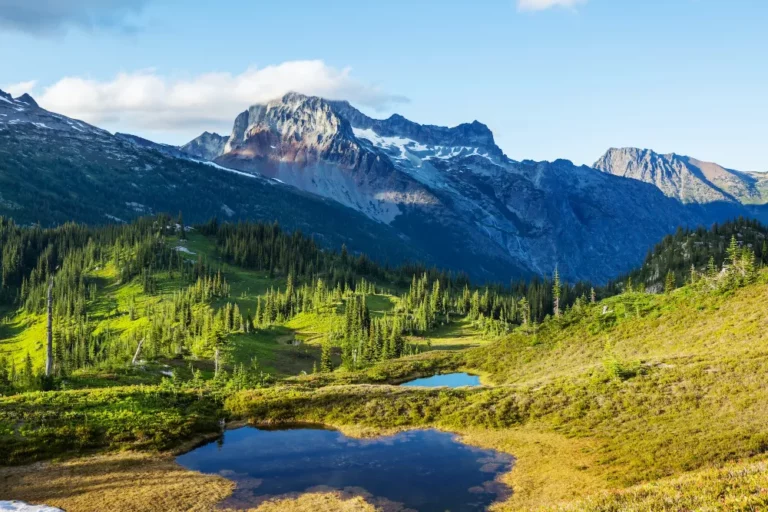Wisconsin, otherwise known as the deer capital world, is by far the state that hunts the most. As of 2021, the Wisconsin Department of Natural Resources (DNR) reported over 4 million active hunters! Wisconsin hunting truly embodies the true nature of the game. In the Cheese State, hunting is not just a sport – but an ancient tradition rooted in the state’s very culture, life, and community.
Table of Contents
With millions of people actively getting ready to gear up for the 2024 season, there can be a lot of information spread out all over the internet regarding licenses, season dates, regulations, prices, and wildlife tags. In this guide, we’ve collected all the most important information you need to have on hand before heading out in the wild! Whether you’re a Wisconsin native or an out-of-stater, we’ve got you covered.
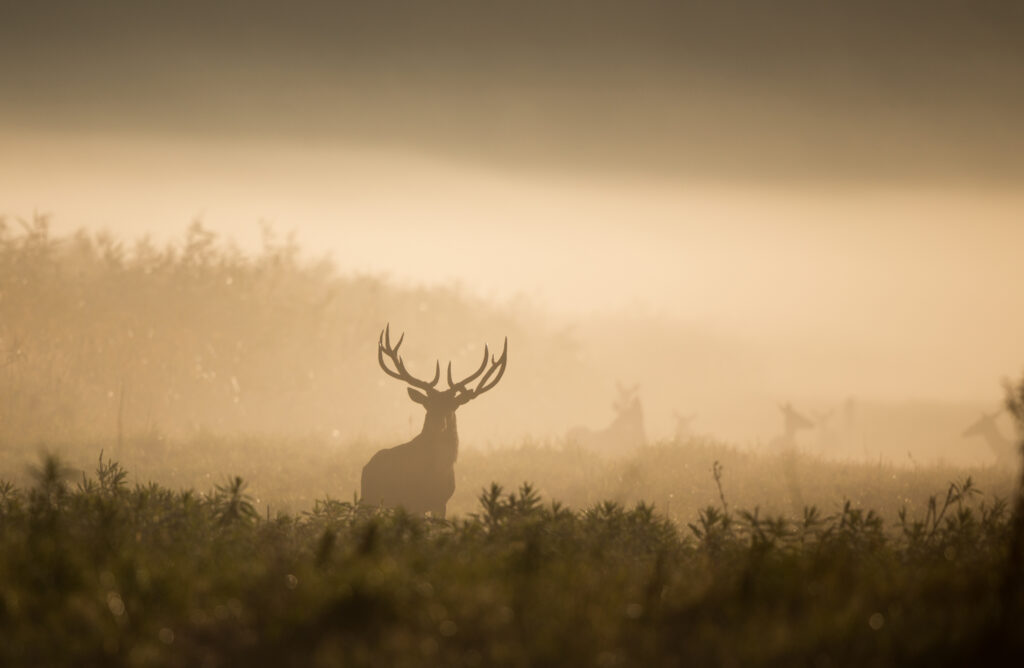
When Does the Wisconsin Hunting Season Start?
Hunting seasons in Wisconsin vary depending on the species being hunted, and the dates are set each year by the Wisconsin Department of Natural Resources. Generally, hunting seasons in Wisconsin begin in September and run through December, although some seasons may extend into January or February.
Below are the dates for all the different Wisconsin hunting seasons.
Deer
Archery and Crossbow: September 18, 2022 to January 9, 2023
Firearm: November 20 to 28
Muzzleloader: November 29 to December 8
Youth Deer Hunt: October 9 to 10
Holiday Hunt: December 24 to January 2, 2023
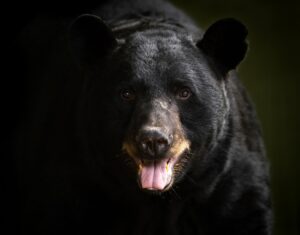
Bear
Zone A: September 8 to October 12
Zone B: September 15 to 21
Zone C: September 22 to 28
Zone D: October 6 to 12
Migratory Birds
Early Teal Season: September 1 to 7
Goose Seasons: September 16 to December 16 and February 5 to 14
Duck Seasons: September 25 to November 23 and December 4 to January 2
Youth Waterfowl Hunt: September 18 to 19

Falconry
Falconry Hunting Seasons: September 1 to March 10
Wild Turkey
Fall Turkey: September 18 to November 19
Spring Turkey: April 13 to May 31
Small Mammals
Squirrel: September 4 to January 31
Rabbit: October 16 to February 28
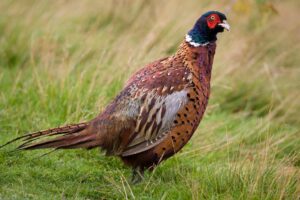
Other Game Birds
Pheasant: October 16 to December 31
Quail: October 16 to December 31
Partridge: October 16 to December 8
Furbearers
Bobcat: December 18 to January 31
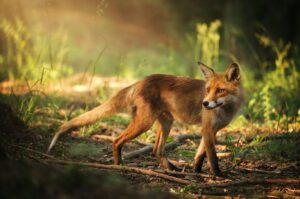
Coyote: Open year-round
Fisher: November 6 to January 3
Raccoon: October 16 to February 28
Red and Gray Fox: October 16 to February 28
Badger: October 16 to February 28
Mink and Muskrat: October 23 to March 31
Weasel: November 6 to February 28
Please note as of writing, the 2022-2023 season has not concluded yet, so the dates for 2023-2024 have yet to be released by the Wisconsin DNR. The above information is based on the 2022-2023 season, and might change for the following season. Once the information is released, we update all the dates.
A Quick Wisconsin Hunting History Lesson
The hunting seasons in Wisconsin date back to the early 1900s when wildlife populations in the state were declining due to unregulated hunting and habitat loss. Concerned citizens and conservationists lobbied for laws to protect and manage wildlife populations, leading to the creation of the Wisconsin Conservation Commission in 1915.

The Commission was tasked with regulating hunting and fishing activities in the state, and it established the first hunting seasons and bag limits for game animals in Wisconsin. Initially, the hunting seasons were short, and bag limits were low to allow wildlife populations to recover. As populations rebounded, hunting seasons were gradually extended and bag limits were increased.
Over the years, as the wildlife population recovered, bag limits were increased – and the attitude toward hunting slowly became more and more popular among the state population.
Today, Wisconsin hunting regulations have evolved to strike a balance between the interests of hunters, conservationists, and other stakeholders in managing Wisconsin’s wildlife populations for the benefit of present and future generations.
This has created the beautiful hunting hub that Wisconsin is today, and why following the regulations of the Commission is crucial for respecting the traditions, nature, and game of the state. You go, Wisconsin.
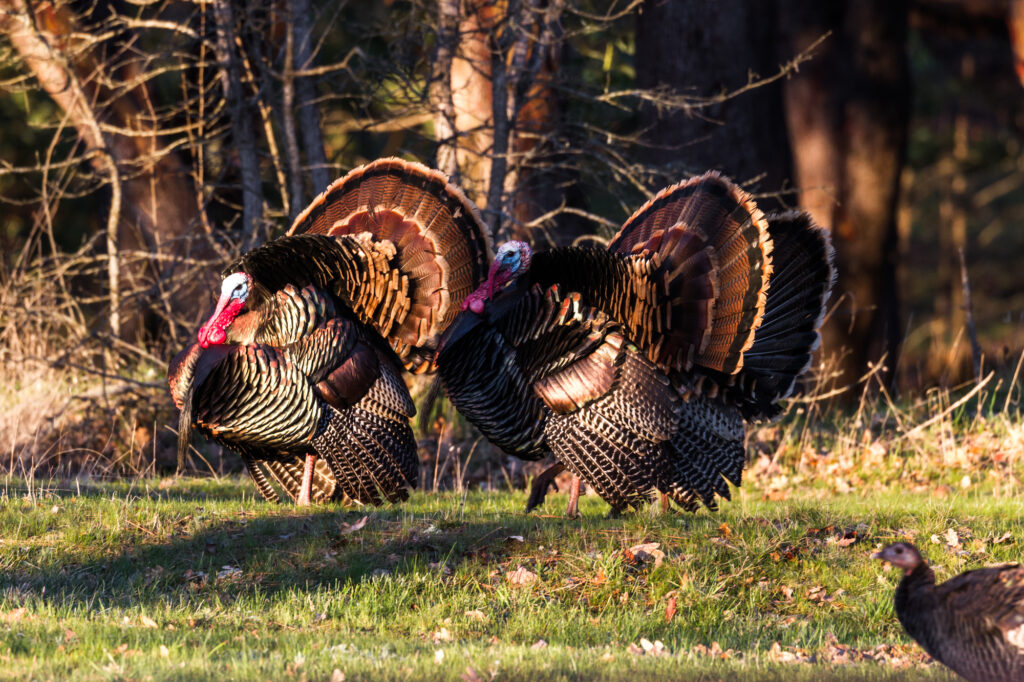
All You Need to Know About Wisconsin Hunting Licenses
Wisconsin hunting licenses are required for anyone who wishes to hunt game animals, migratory birds, or furbearers in the state. Here’s what you need to know about Wisconsin hunting licenses:
Who needs a hunting license?
All hunters above the age of 10 are required to have some form of Wisconsin hunting license, regardless of whether they are hunting on public or private land.
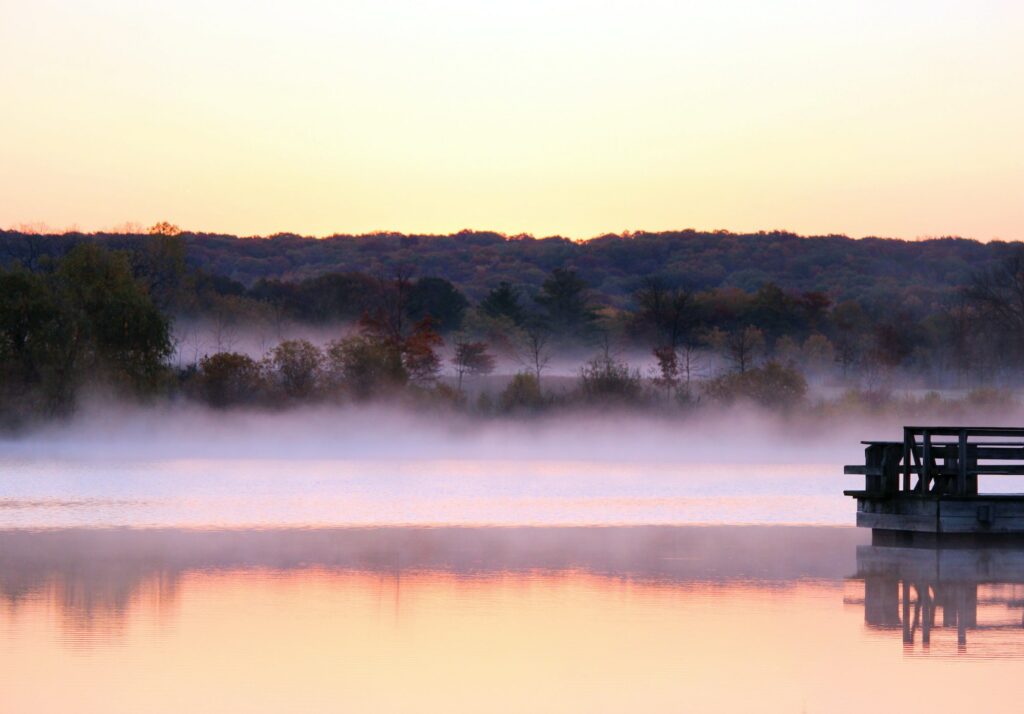
What types of hunting licenses are available in Wisconsin?
There are a variety of licenses, depending on your age, residence, and military status.
Resident Licenses: Available to Wisconsin residents only
Non-Resident Licenses: Available to non-residents of Wisconsin
Youth Licenses: Available to children between the ages of 10 and 17
Senior Licenses: Available to Wisconsin residents who are 65 years or older
Military Licenses: Available to Wisconsin residents who are on active duty in the military or who are disabled veterans
How much do Wisconsin hunting licenses cost?
The cost of Wisconsin hunting licenses varies depending on several factors, including the type of license, residency status, and age of the hunter.
As of 2023, the cost of a Wisconsin hunting license ranges from $5 for a first-time youth hunting license to $164 for a non-resident deer hunting license. Please see the information below for specifics:

Resident Hunting Licenses:
Annual Hunting License: $24
24-Hour Hunting License: $14
Small Game Hunting License: $16
Archery Hunting License: $24
Sportsman’s License: $82
Youth Annual Hunting License: $7
Youth Archery Hunting License: $7
Youth Small Game Hunting License: $7
Non-Resident Hunting Licenses:
Annual Hunting License: $160
10-Day Hunting License: $160
Small Game Hunting License: $80
Archery Hunting License: $160
Sportsman’s License: $530
Note that these prices are for the 2023 hunting season and are subject to change. Check the Wisconsin Department of Natural Resources website for the most up-to-date information on hunting license prices and requirements, as well as specific details on individual tags.
Where can I purchase a Wisconsin hunting license?
There are several options for you if you’re looking to buy a hunting license, depending on your need and preference.
Online
You can purchase a hunting license online through the Wisconsin Department of Natural Resources GoWild website. This option is available 24/7 and allows you to print your license at home immediately after purchase!
By Phone
You can purchase a hunting license over the phone by calling 1-888-936-7463. This option is available Monday through Friday, 7:00 am to 10:00 pm, and on weekends and holidays, 8:00 am to 10:00 pm.
In Person
You can purchase a hunting license in person at any authorized license agent, such as a sporting goods store or DNR Service Center. Check out all authorized locations here.
When do Wisconsin hunting licenses expire?
Wisconsin hunting licenses are valid from April 1 of the year they are issued to March 31 of the following year.
Are there any other requirements for hunting in Wisconsin?
Yes, in addition to a hunting license, hunters in Wisconsin are required to complete a hunter safety course before they can purchase a hunting license. You can find more information on the Wisconsin Hunter Safety Course in the next section!
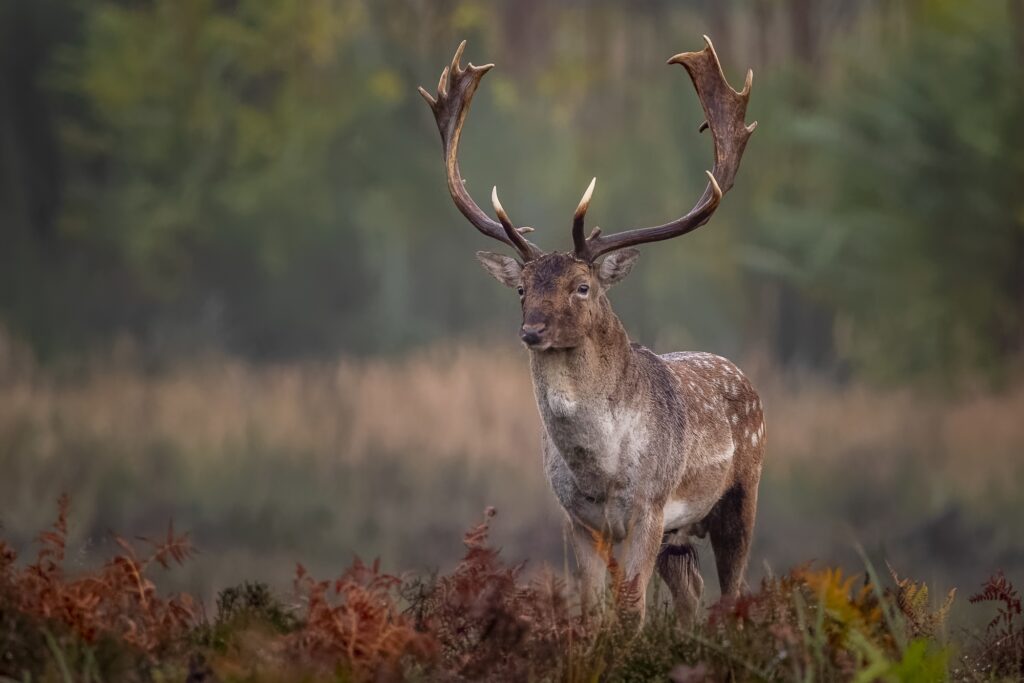
Hunter Safety Courses
In Wisconsin, all hunters born on or after January 1, 1973, must complete a hunter education course before they can purchase a hunting license. This requirement applies to both resident and non-resident hunters. Here is some more information on hunter safety courses in Wisconsin:
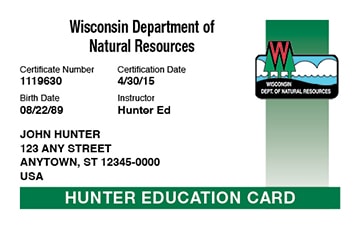
The Wisconsin Department of Natural Resources offers several options for completing a hunter education course. These include a traditional classroom course, an online course, or a field day course. You can find more information about these courses and register for one right here.
The traditional classroom course is typically taught over two to three days and covers a range of topics, including firearm safety, wildlife conservation, and hunting ethics.
The online course allows you to complete the coursework at your own pace and on your own schedule. After you complete the online portion, you must attend a field day course to complete the hands-on training.
The field day course is typically six to eight hours long and covers hands-on training in firearm safety, hunting strategies, and other topics covered in the hunter education course.
Once you have completed a hunter education course, you will receive a certificate of completion. You must provide this certificate when purchasing a hunting license.
Do I still need to take a course if I have previously completed a course in a different state?
If you are like us and like to hunt in different states, you probably already have completed a hunter’s safety course somewhere else. In this case, you may be eligible to waive the hunter education requirement in Wisconsin. You will need to provide proof of completion of a similar course to the Wisconsin DNR to be eligible for this exemption. Give them a call at 1-888-936-7463 to check!
Do I need a different hunting license for bow hunting?
No, the general hunting course applies to all types of hunting, including bowhunting, crossbow hunting, and trapping.
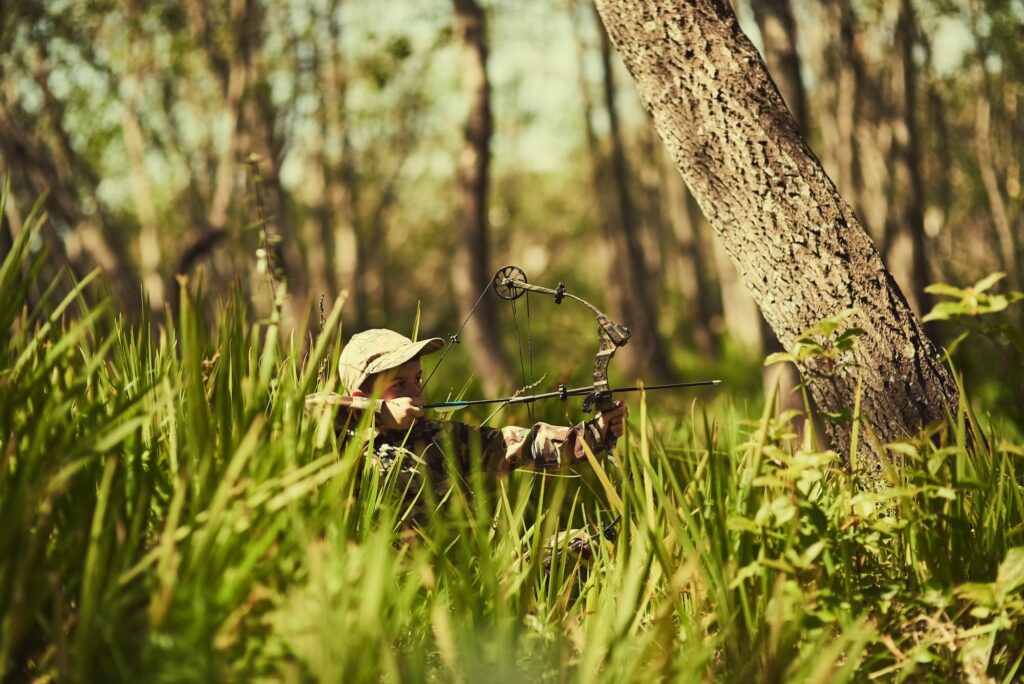
Additional Wisconsin Hunting Regulations
In addition to the information covered in the article so far, there are a few other regulations to keep in mind. Here are a couple more regulations to be aware of before planning your Wisconsin hunting trip.

Bag Limits: Bag limits are the maximum number of animals that a hunter is allowed to kill in a given hunting season. These limits are set by the DNR to ensure that populations of game animals remain stable and healthy. Bag limits vary depending on the species, location, and season, so it’s important for hunters to check the regulations for their specific hunt before heading out.
Firearms Safety: Hunters in Wisconsin must follow strict firearms safety rules while hunting. These include keeping their firearms pointed in a safe direction, treating every firearm as if it is loaded, and keeping their finger off the trigger until ready to shoot.
Additionally, hunters must follow specific safety zones around homes, buildings, and roads, as well as avoid shooting across roads or bodies of water.
Reporting: Hunters must report their harvest of certain game animals, including deer and turkey, to the DNR. This information helps the DNR track population levels and make informed decisions about hunting regulations in the future.
Public vs Private Hunting Land
Hunting in Wisconsin offers a wide range of options for both public and private land. Depending on your preference and hunting experience, there are advantages and disadvantages to both options, but if you’ve been doing one or the other your entire life – it might be worth checking out your options!
Public Land Hunting
Public land hunting in Wisconsin offers hunters the opportunity to hunt in areas that are managed and maintained by the state. This can include state parks, state forests, wildlife areas, and other public lands.
Hunting on public land can be a great option for hunters who are looking for a more rustic and challenging hunting experience. Public lands are often less developed and can offer more opportunities for hunters to track and locate game.
Additionally, hunting on public land is typically more affordable than hunting on private land, as there are no access fees or landowner permits required.
However, there’s no looking away from the potential downsides that it might come with. Public lands are often heavily hunted and can become crowded during peak hunting seasons. This can make it more difficult to find game and can also pose safety concerns.
Additionally, the Wisconsin public lands can be more challenging to navigate, especially for hunters who are not familiar with the area (though if you have some basic wits about you you’ll be fine).
Private Land Hunting
Private land hunting in Wisconsin offers hunters the opportunity to hunt on privately-owned land with the permission of the landowner. Private land can offer a more controlled and comfortable hunting experience, as hunters can set up their own blinds or stands, and are less likely to encounter other hunters.
Additionally, private land can offer hunters more opportunities to hunt larger game, such as deer and bear!
However, hunting on private land can also be more expensive, as you usually have to pay for access fees or landowner permits. Private land also tends to have more restricted hunting regulations, which can limit the types of game that can be hunted and the hunting methods that can be used.
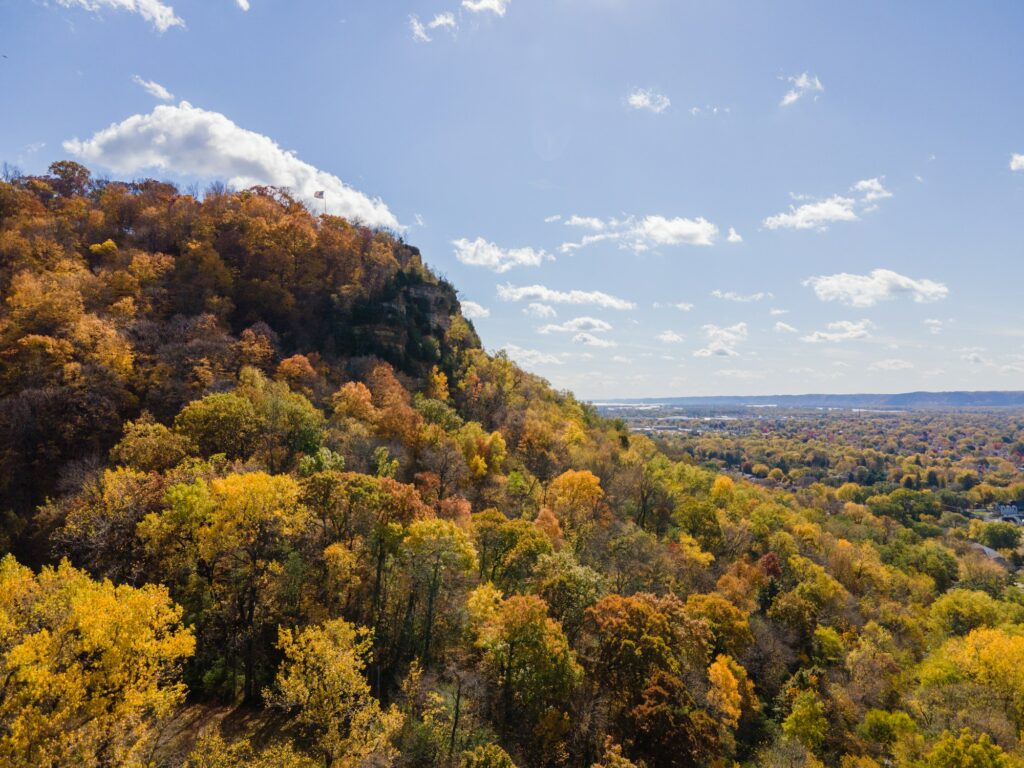
Why Wisconsin Hunting?
In a state as beautiful and diverse as Wisconsin, hunting is more than just a pastime – it’s a way of life. From the deep woods of the Northwoods to the rolling hills of the Driftless Area, Wisconsin offers some of the best hunting opportunities in the country (if not the best).
Wisconsin hunting is not just about bagging a big buck or flushing out a flock of game birds; but the comradery and respect that hunters share for the land and wildlife. There’s something special about sitting in a tree stand with your best friend or sharing a laugh with your family as you hike through the fields. It’s these moments that make Wisconsin hunting so much more than just a hobby.
And as an added bonus, let’s not forget about the positive impact that hunters have on Wisconsin’s economy. The revenue generated from hunting licenses, permits, and other fees helps to support conservation efforts, wildlife management, and land acquisition projects throughout the state.
In fact, the Wisconsin Department of Natural Resources estimates that hunting contributes over $2 billion to the state’s economy each year. That’s just an absurd amount of money, and knocks every other state out of the park.
Before you head out on your adventure, make sure you continue to celebrate the traditions of Wisconsin hunting, that has been passed down from generation to generation since the birth of America. And most importantly, regardless of where your next hunt is, let’s enjoy the time we spend in the great outdoors with friends and family, creating memories that will last a lifetime.
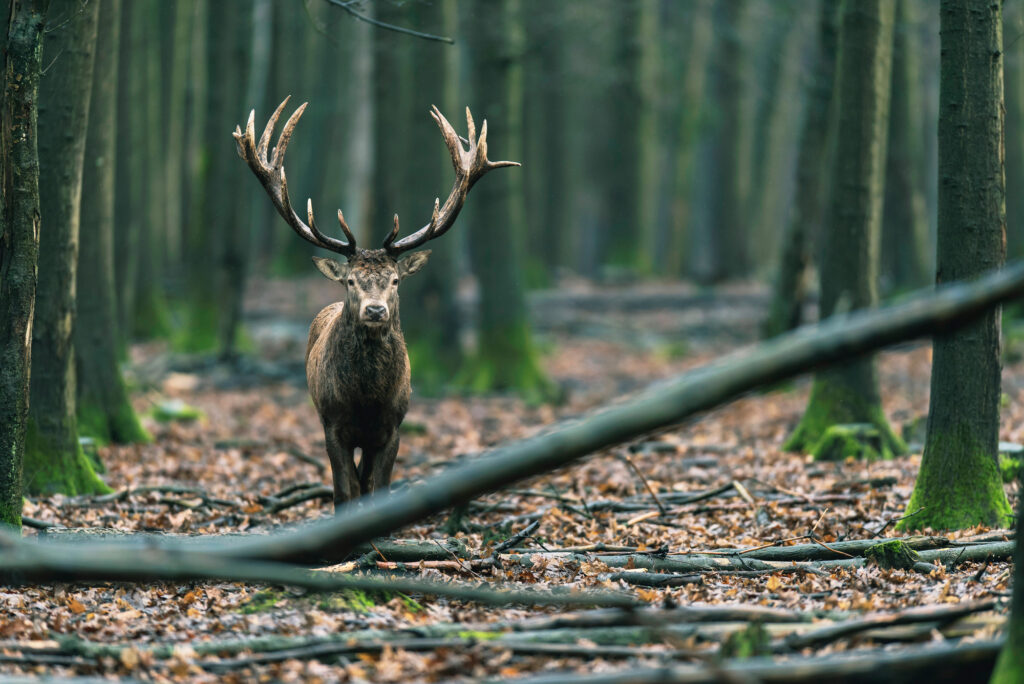
Looking for information on hunting in other states? Check out our other state guides here.
Happy hunting!


